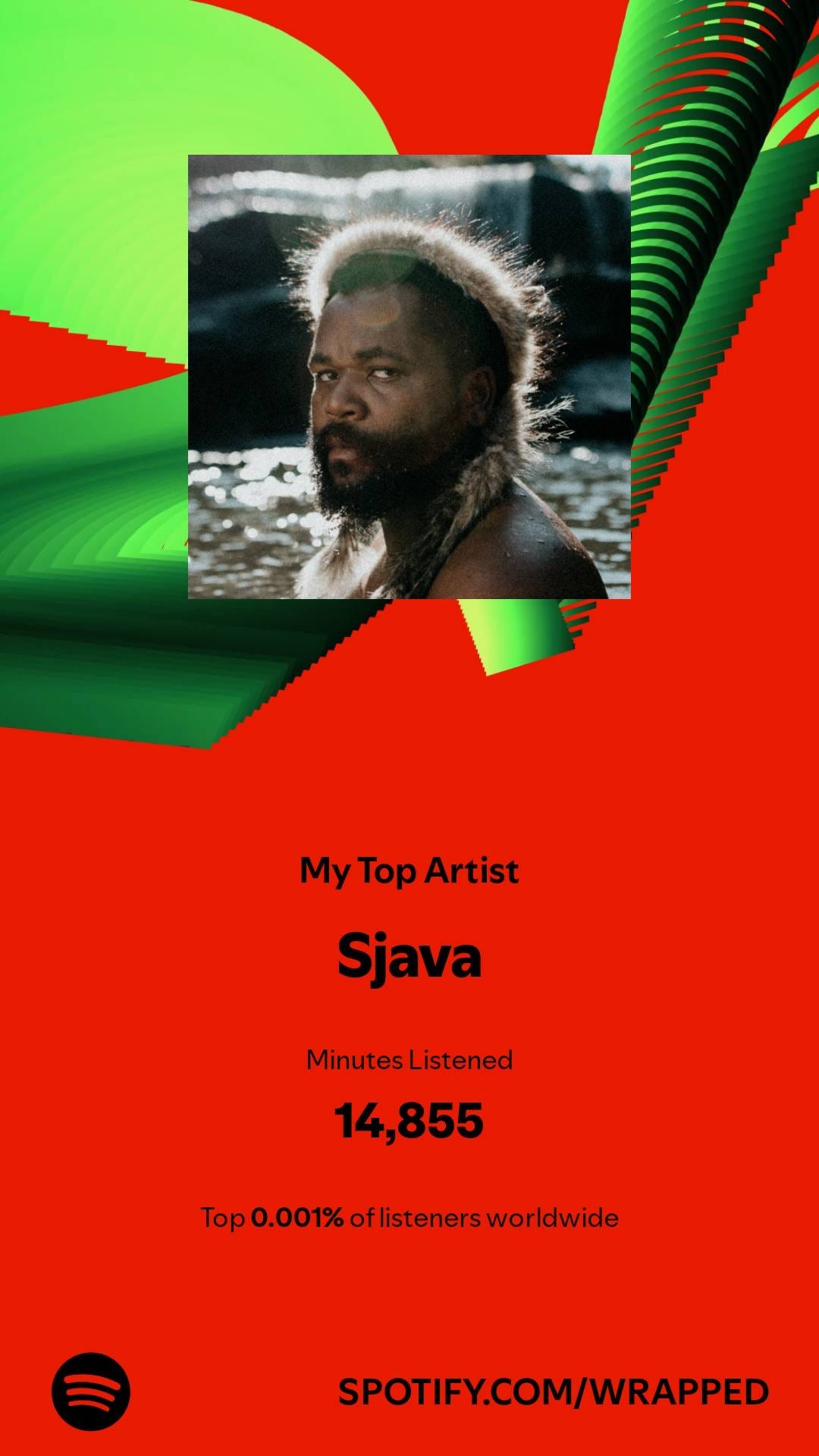The Mark of Authenticity
How Sjava merged Zulu tradition with modern Hip-pop, Redefining Afropop, and earning a Kendrick Lamar nod.

When recording Seasons—a song for the Black Panther Soundtrack, BET Award winning Afropop artist Sjava had a dilemma.
“I didn’t know what to talk about until the last day,” he says in an exclusive Apple Music interview with Ebro.
“I was so confused… Do I do it in English so that the whole world can understand or do I choose the feeling more than the understanding of what I’m saying?”
Eventually, on the last day of recording, he went with the feeling delivering what would be among one of his biggest verses and songs of his career. Today, Sjava is hailed also as one of the most authentic artists South Africa has ever produced. His Zulu raps and traditional-to-modern aesthetic embodies the rich culture of South Africa, of the Zulu people, something that he doesn't shy away from embracing.
Like many Spotify users, I questioned my 2024 wrapped. My top five songs and top five artists seemed inaccurate. But I wouldn’t know how the algorithm works or maybe I wasn’t paying attention to what I was listening to. However, having Sjava as my most streamed artist of the year got me questioning: What is it about him or his music that draws me in?
Responding to the question on his decision to don a traditional Zulu outfit to the 2018 BET Awards, Sjava said:
"I went to the Metros [Metro FM Music Awards 2017] wearing a black Brentwood [trousers], a leather jacket with no shirt on. I also recently attended the SAMAS [South African Music Awards] in my traditional Zulu wear, imvunulo, and on both occasions I was made a joke of.
"What people don't understand is that when I attend these big events wearing imvunulo, it is because where I come from, in Bergville, there's a kid that's making music who goes to Shembe—that kid has always been told he can't make it in the industry because his hair is different and he has a beard. So when he sees me looking like him, he is assured that he does not have to change for anyone.
"At the same time, I also represent my people from Malvern Taxi rank. My mom used to be a vendor here, for many years. I practically grew up on Jules Street. I have to represent those people, because they played a huge role in making me who I am today. They are a big part of me. So, everything I do, I do for people."
Growing up around a grandfather who had a strong sense of culture and tradition, I came to appreciate what most young people would deem archaic and probably retrogressive. Also, inevitably so, my grandfathers’ old school playlist stuck with me. Sjava is the bridge that connects my grandfathers’ world with mine. When called to the occasion, he drops hip hop rhymes and bars like his life depends on it or, as the Twitter streets say, like rent is due.
Whilst many hip pop artists were trying to sound American, he took his American hip pop influences and his home town music love to create his own sound—a fusion of African pop, Hip pop, Maskandi(traditional Zulu music) and contemporary R&B. Coupled with his custom made traditional Zulu outfits, he defined his own lane and became a critically acclaimed success.
Beyond the music, I believe I fell in love with the Story. In the beginning of his verse to Seasons the black panther soundtrack feature, Sjava introduces the song with a disclaimer:
“...Insizwa uma ina-thirty five kthiwa is' indala
( If a man is now 35 they say he’s old).Laph' eng'phuma khona maw'phuma khona bathi aw'fiki la
(Where I come from, they say when you come from there you don’t make it that far.)Ngyamangala uma ngi-la
(I’m amazed that I’m here.)Bebathi ng'yophelel emoyeni, beba right
(They thought I would just disappear into thin air. They were right.)Manje ngiy'nkanyezi…
(Because I’m now a star)”
Sjava found success at an older age. On the come up, he was ridiculed for hanging around young hip pop boys—a move deliberate in building his music career and friendships. At 35, with a Kendrick Lamar endorsement and feature, he can’t believe he made it that far, given where he’s coming from.
To me, he’s a success story closer to home. Because, oftentimes we are fed success stories of other people—people in Hollywood, CEOs in Silicon Valley and rich kids who had every opportunity to fail and still get access to try again. Stories close to home—the African success story—are far from our day to day reality. As Sjava echoes, being seen on the world’s biggest stages by a kid from the same neighbourhood he was coming from makes them believe in the possibility of that reality.
Of course, it is possible to love an artist without knowing their come up story or even relate to any of their struggles. But to justify my Spotify wrapped, which I initially wasn’t in consensus with, it has to be bigger than just what my ears first heard. Yes, that’s how sacred occupying the number one artist spot on my Spotify-wrapped is. It comes with such great responsibility for the artist—who, by the way, doesn't even know I exist—to prove themselves worthy to be at the upper echelons. Otherwise, what are we even doing if we’re not esteeming ourselves highly in our private spaces, daily lives and in our day dreams?
Consequently, I adore what Sjava has managed to build, following unconventional lanes and choosing not to look like or as the world prescribes for him.
If you stick around, I’ll tell you about the pathway to heaven that Kelvin Momo provides with his Private School Amapiano.
So, who’s your top artist for the year and how did you pick them for that spot?
This week on the Podcast:



